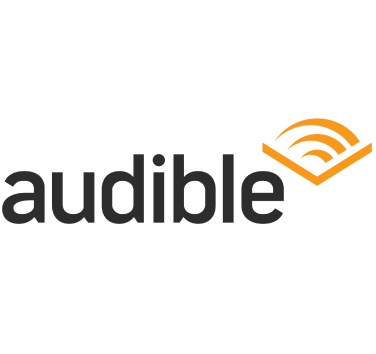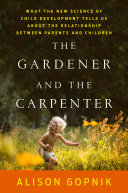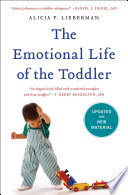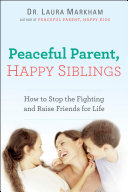Books can be an invaluable resource for today’s parents, and here are some of the best parenting books to consider for your bookshelf.
Whether you are a seasoned parent or are expecting your first child, there are many things to learn about raising children. The best parenting books will outline everything from what to expect in the first year to how to support and love your child for exceptional emotional development.
Table of Contents
Open Table of Contents
- 7 Best Parenting Books Every New Parent Needs
- 1. The Gardener and the Carpenter by Alison Gopnik
- 2. Talk so Kids Will Listen & Listen so Kids Will Talk by Adele Faber and Elaine Mazlish
- 3. Peaceful Parent, Happy Kids by Dr. Laura Markham
- 4. The Whole-Brain Child by Daniel J. Siegel, MD and Tina Bryson, Ph.D.
- 5. Mayo Clinic Guide to Your Baby’s First Year
- 6. The Happiest Baby on the Block by Harvey Karp
- 7. The Emotional Life of the Toddler by Alicia F. Lieberman
- A Final Word On The Best Parenting Books
- FAQs on the Best Parenting Books
7 Best Parenting Books Every New Parent Needs
As you shop for a gift for a new parent or look for something you can use for yourself, here are the top books that will teach you how to nurture your child through all of the stages of development, from breastfeeding and potty training to dealing with a hormonal 16-year-old.
1. The Gardener and the Carpenter by Alison Gopnik
Clinical psychologist and philosopher Alison Gopnik challenges the 21st-century view of parenting in this book.
She indicates that parents need to let children learn by creating secure, loving environments, rather than by focusing entirely on “parenting” them well.
This book is a great gift for new parents or parents of preschoolers because it helps them learn to give themselves permission to have unpredictable and messy children.
“Love doesn’t have goals or benchmarks or blueprints, but it does have a purpose. The purpose is not to change the people we love, but to give them what they need to thrive. Love’s purpose is not to shape our beloved’s destiny, but to help them shape their own.”
Alison Gopnik
2. Talk so Kids Will Listen & Listen so Kids Will Talk by Adele Faber and Elaine Mazlish
This book [explores how to communicate](https://www.goodreads.com/book/show/769016.How_to_Talk_So_Kids_Will_Listen_Listen_So_Kids_Will_Talk? from_search=true&from_srp=true&qid=n0KJK3J9xf&rank=1) with children in such a way that they will not only listen to the parent but also want to talk to the parent. This team of New York Times bestselling authors teaches parents what to do with big feelings, both in themselves and in their kids, so that communication continues.
These authors explore alternatives to punishment when children exhibit negative behaviors. They also teach how to resolve family conflicts with peace and an understanding of child development. Finally, they explore setting limits and using helpful, not unhelpful, praise.
“The whole world will tell them what’s wrong with them—loud and often. Our job is to let our children know what’s right about them.”
Adele Faber And Elaine Mazlish
3. Peaceful Parent, Happy Kids by Dr. Laura Markham
In Peaceful Parent, Happy Kids, Dr. Laura Markham explores her clinical experience and the most current research on brain development to teach parents how to develop emotional connections with their children. Her belief is that having that connection means parents no longer have to yell, threaten or punish.
The changes advocated for in this book stem from the idea that when a parent understands their own emotions, they can better parent their children. It explores many stages of development from the toddler years through the elementary years.
“Most parents think that if our child would just ‘behave,’ we could maintain our composure as parents. The truth is that managing our own emotions and actions is what allows us to feel peaceful as parents.”
Dr. Laura Markham
4. The Whole-Brain Child by Daniel J. Siegel, MD and Tina Bryson, Ph.D.
In*[The Whole-Brain Child](https://www.goodreads.com/book/show/10353369-the-whole-brain-child? ac=1&from_search=true&qid=VbdsLyQ8XD&rank=1),* the authors explore the neuroscience behind the developing mind and what it needs to grow into a healthy child. While it is a very scientific approach to understanding the child’s brain, it is written in a way that appeals to the everyday parent.
“Too often we forget that discipline really means to teach, not to punish. A disciple is a student, not a recipient of behavioral consequences.”
Daniel J. Siegel And Tina Bryson
5. Mayo Clinic Guide to Your Baby’s First Year
In this book, a team of pediatricians and baby experts explore all of the development that happens in the first year of a baby’s life. When a new parent has a question in the middle of the night, this is the resource they can grab off of the bookshelf to consult.
This is a must-have book on child health and welfare. It even includes growth charts to put worried parents’ minds at ease.
6. The Happiest Baby on the Block by Harvey Karp
Every mom wants to have the happiest baby on the lock, and Dr. Harvey Karp wants to teach them how. This book focuses on sleep training and crying calming babies.
In*The Happiest Baby on the Block,* Dr. Karp does not advocate sleep training through crying it out. Rather, he encourages parents to swaddle, shush and swing their babies, then use sucking reflexes and side positions to trigger the baby’s natural calming abilities.
“Can young babies inadvertently be turned into brats who demand constant holding and attention? Thankfully, the answer to that question is … No! During the first three months of life (the fourth trimester), it’s impossible to spoil your baby by letting her suck or stay in your arms for hours.”
Harvey Karp
7. The Emotional Life of the Toddler by Alicia F. Lieberman
In The Emotional Life of the Toddler, Dr. Lieberman explores why toddlers have such explosive emotions. She teaches parents how to deal with tantrums and crying toddlers, what to do about screen time and how to ensure good development during this wild stage of life.
One of the reasons this book makes it on the list is it gives parents permission not to give in to every whim of their children’s emotions, especially during this emotionally volatile age.
“It is neither possible nor desirable to be always attuned and responsive to the moods and wishes of children.”
Alicia F. Lieberman
A Final Word On The Best Parenting Books
It doesn’t take long to check social media and see that parents around the globe are dealing with power struggles and frustration with their kids. Many of these problems start when they have young children.
The best parenting books are those that teach parents how to understand their children and meet their emotional and developmental needs in a peaceful, supportive way.
When looking to stock your bookshelf with parenting books, look for those that take this gentler approach to parenting. Also, look for books written by doctors and parenting experts, so you can be confident the advice they give is accurate.
FAQs on the Best Parenting Books
What is the best parenting book for toddlers?
Some of the best parenting books for toddlers include The Gardener and the Carpenterby Alison Gopnick, TheEmotional Life of the Toddlerby Dr. Alicia F. Leiberman andPeaceful Parent, Happy Kids by Dr. Laura Markham.
What are some of the best parenting books for babies?
New parents can benefit from the resources in*Mayo Clinic Guide to Your Baby’s First Year andThe Happiest Baby on the Block**.




